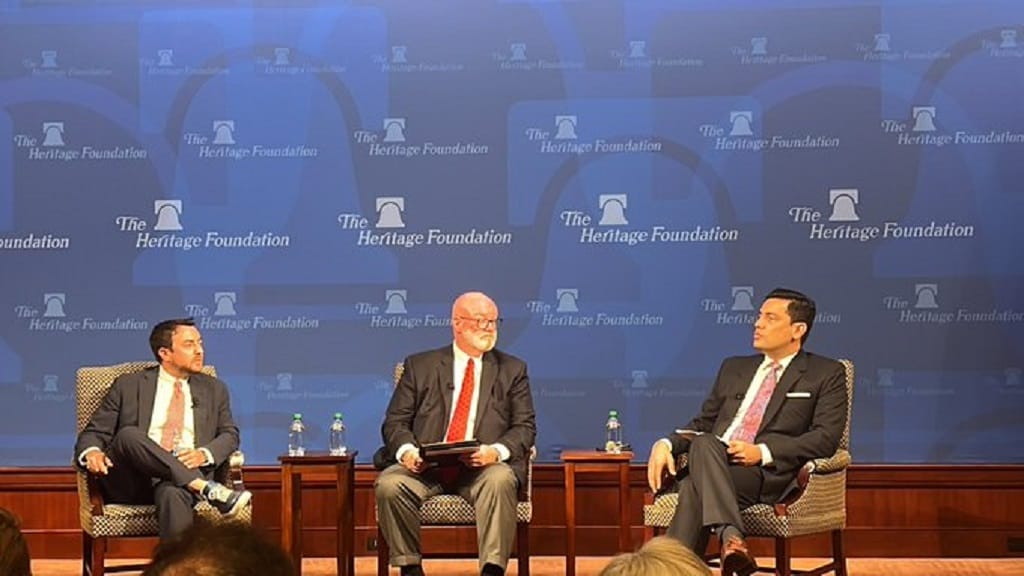Leave Section 230 Alone, Panelists Urge Government
The debate on what government should — or shouldn’t — do with respect to liability protections for platforms continues.
Riley Haight

WASHINGTON, May 10, 2022 – A panelist at a Heritage Foundation event on Thursday said that the government should not make changes to Section 230, which protects online platforms from being liable for the content their users post.
However, the other panelist, Newsweek Opinion Editor Josh Hammer, said technology companies have been colluding with the government to stifle speech. Hammer said that Section 230 should be interpreted and applied more vigorously against tech platforms.
Countering this view was Niam Yaraghi, senior fellow at the Brookings Institution’s Center for Technology Innovation.
“While I do agree with the notion that what these platforms are doing is not right, I am much more optimistic” than Hammer, Yaraghi said. “I do not really like the government to come in and do anything about it, because I believe that a capitalist market, an open market, would solve the issue in the long run.”
Addressing a question from the moderator about whether antitrust legislation or stricter interpretation of Section 230 should be the tool to require more free speech on big tech platforms, Hammer said that “Section 230 is the better way to go here.”
Yaraghi, by contrast, said that it was incumbent on big technology platforms to address content moderation, not the government.
In March, Vint Cerf, a vice president and chief internet evangelist at Google, and the president of tech lobbyist TechFreedom warned against government moderation of content on the internet as Washington focuses on addressing the power of big tech platforms.
While some say Section 230 only protects “neutral platforms”, others claim it allows powerful companies to ignore user harm. Legislation from the likes of Amy Klobuchar, D-Minn., would exempt 230 protections for platforms that fail to address Covid mis- and disinformation.
Correction: A previous version of this story said Sen. Ron Wyden, D-Ore., agreed that Section 230 only protected “neutral platforms,” or that it allowed tech companies to ignore user harm. Wyden, one of the authors of the provision in the 1996 Telecom Act, instead believes that the law is a “sword and shield” to protect against small companies, organizations and movements against legal liability for what users post on their websites.
Additional correction: A previous version of this story misattributed a statement by Niam Yaraghi to Josh Hammer. The story has been corrected, and additional context added.









Member discussion